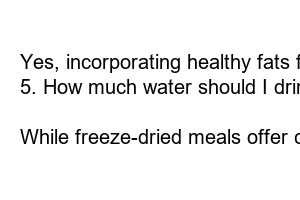등산 다이어트 효과
Title: The Impact of Diet on Mountaineering Performance
Introduction:
Mountaineering is an exhilarating yet physically demanding sport that requires immense strength, endurance, and mental resilience. While training, gear, and experience play crucial roles, one aspect often overlooked is the impact of diet on mountaineering performance. In this article, we will delve into the significance of a well-balanced diet, debunk common misconceptions, and provide practical tips to optimize your nutrition for successful mountaineering expeditions.
1. Fueling Your Ascend: The Role of Proper Nutrition
Adequate nutrition is the foundation of any athletic endeavor, and mountaineering is no exception. High-energy demands, prolonged physical exertion, and harsh environmental conditions necessitate a diet rich in **nutrient-dense** foods that offer sustained energy, help rebuild muscle tissue, and promote recovery.
2. Carbohydrates: The Essential Energy Source
Carbohydrates serve as the primary fuel source for mountaineering. Foods such as whole grains, fruits, and vegetables provide complex carbohydrates, which release energy more gradually, supporting endurance during long climbs. **Prioritize** these nutrient-packed options to maintain glycogen stores and delay fatigue.
3. Protein: Building Blocks for Strength and Recovery
Protein plays a crucial role in repairing damaged muscle tissue and promoting muscle growth. Aim to include lean sources like poultry, fish, legumes, and dairy products in your meals and snacks to optimize muscle recovery and enhance endurance during mountaineering expeditions.
4. Hydration: The Ultimate Game Changer
Proper hydration is essential for peak performance in the mountains. **Stay hydrated** by drinking water at regular intervals and consuming electrolyte-rich beverages to replenish precious minerals lost through perspiration. Dehydration can lead to decreased performance, increased fatigue, and even altitude sickness.
5. Nutritional Myths: Busted!
Clearing up common misconceptions can help you make informed dietary choices. Contrary to popular belief, a high-carb diet does not necessarily equate to weight gain. On the contrary, the right balance of carbohydrates, protein, and healthy fats aids in optimal physical performance, assists in weight management, and supports overall well-being.
6. Maximizing Nutrition in Extreme Conditions
Mountaineering exposes the body to intense physical stress and challenging environmental conditions. To meet increased nutritional needs, pack lightweight, nutrient-dense snacks like nuts, energy bars, dried fruits, and jerky to refuel during climbs. **Prioritize** easily digestible foods and opt for calorie-dense options to conserve energy.
7. Adapting Your Diet to Altitude
As you ascend to higher altitudes, your body experiences physiological changes. Higher oxygen demands, increased calorie burn, and potential appetite suppression necessitate a focus on calorie-rich foods to maintain energy levels. Consider nutrient-dense, freeze-dried meals and incorporate hot drinks, soups, and high-calorie snacks into your diet.
Summary:
In summary, proper nutrition plays a pivotal role in mountaineering success. Focus on consuming **nutrient-dense carbohydrates, lean proteins**, and staying adequately hydrated to optimize performance. Addressing misconceptions, adapting to extreme conditions, and adjusting your diet for altitude are key elements to ensure you remain energized and resilient throughout your mountaineering expeditions. Remember, a well-fueled body will help you conquer even the most challenging peaks. Stay safe, stay strong, and enjoy the incredible journey that mountaineering offers!
FAQs:
1. Does high-altitude mountaineering require a special diet?
While there is no one-size-fits-all diet for high-altitude mountaineering, adjusting your nutrition to address increased energy needs and appetite suppression can greatly enhance performance.
2. Can I consume sweets or sugary snacks during climbs?
In moderation, consuming sweets or energy gels during climbs can provide a quick energy boost. However, pairing them with nutrient-dense foods is crucial to maintain overall energy levels.
3. Is it important to consume carbohydrates both before and during climbs?
Yes, consuming carbohydrates before and during climbs helps replenish glycogen stores and maintain sustained energy levels. **Prioritize** complex carbohydrates over simple sugars.
4. Are fats necessary in a mountaineering diet?
Yes, incorporating healthy fats from sources like nuts, seeds, avocado, and olive oil provides essential nutrients, aids in satiety, and helps maintain energy levels during long climbs.
5. How much water should I drink during mountaineering expeditions?
Hydration needs vary depending on many factors, including altitude, exertion levels, and individual sweat rates. Monitor your thirst level and drink fluids regularly to stay adequately hydrated.
6. Can I rely solely on freeze-dried meals during mountaineering expeditions?
While freeze-dried meals offer convenience, it’s beneficial to include a variety of nutrient-dense, lightweight options like nuts, energy bars, and dried fruits to ensure a balanced diet.

